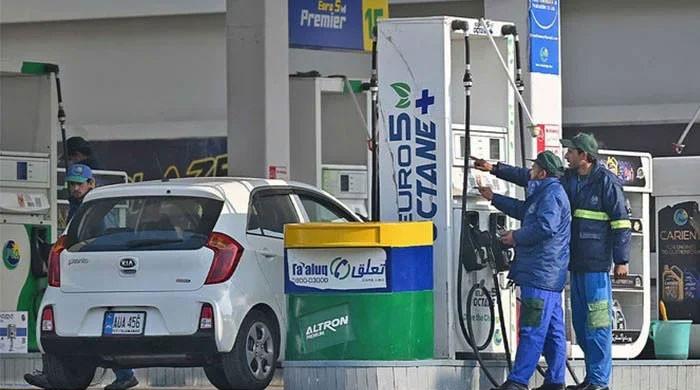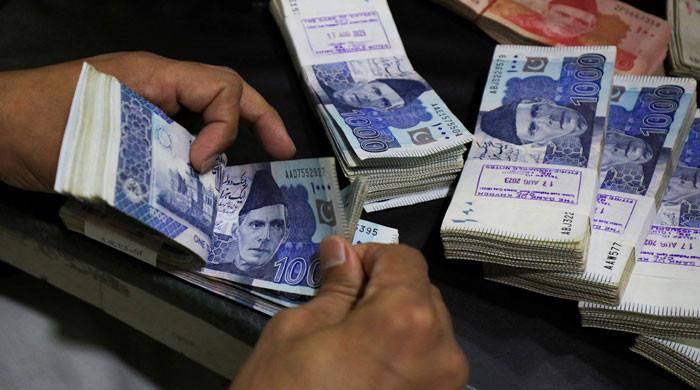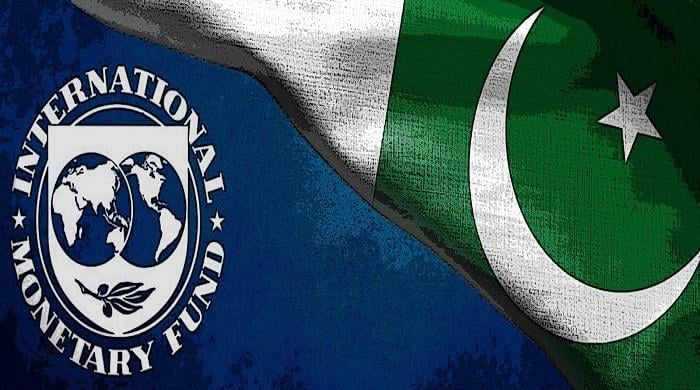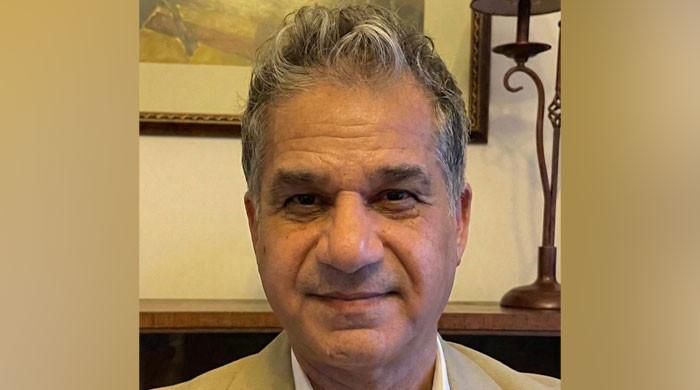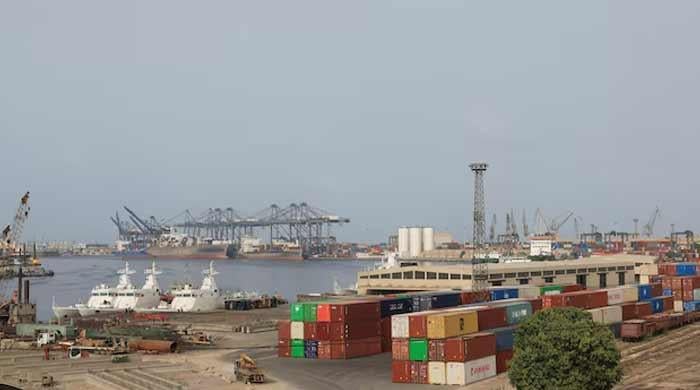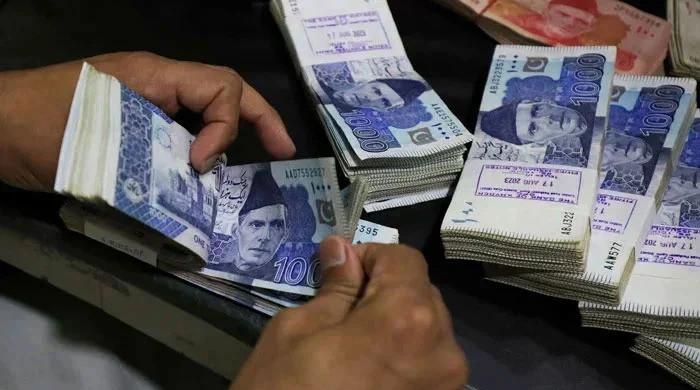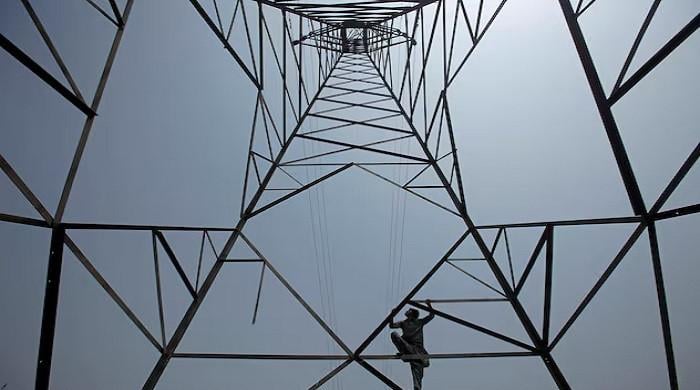Pakistan mulls alternative routes for oil imports in case of Strait of Hormuz blockade
Ogra spokesperson says Pakistan has sufficient reserves of petrol and diesel
June 23, 2025
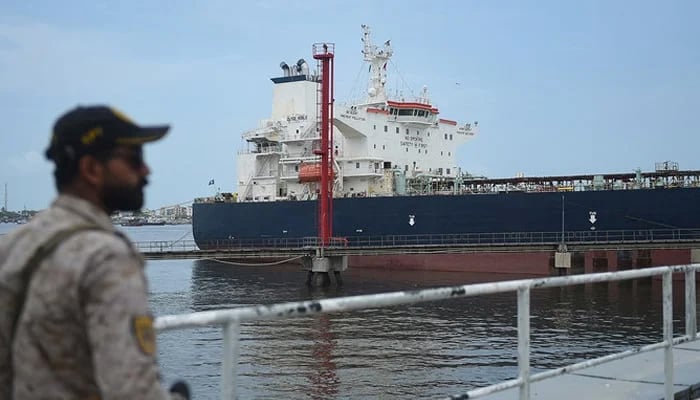
- Petroleum minister says OMCs not ordered to reduce sales.
- Adds PM Shehbaz will also review situation in upcoming session.
- Iran parliament "backed" closure of Strait of Hormuz after US strikes.
Federal Minister for Petroleum Ali Pervaiz Malik said on Monday that arrangements were being made for importing petroleum products through alternative routes in case of Strait of Hormuz closure amid the Iran-Israel conflict.
His statement came after Iran initiated moves to block the strait in response to the US strikes on nuclear sites which increased tensions in the Middle East.
Speaking to Geo News, Malik said that the government was reviewing the situation of petroleum products daily amid the evolving regional situation.
Rejecting reports of fuel rationing, he assured that the country has adequate stocks of petroleum products and clarified that oil marketing companies were not instructed to reduce sales.
"Today, we assessed the potential challenges that could arise if the Strait of Hormuz is closed," Malik said and expressed optimism about improvement in the regional situation.
He revealed that the authorities were working on contingency plans for oil imports in case of a closure of the strait. The government will make all-out efforts to maintain the supply chain of petroleum products, Malik added.
The strait lies between Oman and Iran and links the Gulf north of it with the Gulf of Oman to the south and the Arabian Sea beyond.
About a fifth of the world's total oil consumption passes through the strait. Between the start of 2022 and last month, somewhere between 17.8 million and 20.8 million barrels of crude, condensate and fuels flowed through the strait daily, data from analytics firm Vortexa showed.
Citing potential challenges, the federal minister said that Prime Minister Shehbaz Sharif will also review the situation in an upcoming session.
Malik said the fuel prices were not increased willingly and the government would have to increase them given the hike in the global oil rates.
He added that directives have been issued to ensure fuel supply to Balochistan.
Petrol, diesel reserves
Meanwhile, Oil and Gas Regulatory Authority (Ogra) spokesperson Imran Ghaznavi told Geo News that the country has petrol reserves sufficient for approximately 22 days.
Detailing the status of fuel reserves, he added that the country has enough diesel to meet consumption for 32 days.
He also confirmed that fuel imports are continued as per the schedule. Ghaznavi clarified that the relevant authorities did not issue any instruction to halt or limit fuel supply.
The country’s daily petrol consumption is approximately 24,000 metric tons, and diesel consumption is around 18,000 metric tons," he concluded.
Around 84% of oil passing through the Strait of Hormuz is destined for Asia, leaving the economies of China, India, South Korea and others vulnerable should Iran blockade the crucial trading route over US strikes on its nuclear sites.
Crude oil from Saudi Arabia, the UAE, Iraq, Kuwait, Qatar and Iran almost exclusively passes through the corridor.
Limited alternatives
Asian countries could diversify their oil suppliers, but it is difficult to replace the large volumes coming from the Middle East.
In the short term, "elevated global oil inventories, OPEC+'s available spare capacity, and US shale production all could provide some buffer", experts at MUFG Bank said.
"However, a full closure of the Hormuz Strait would still impact the accessibility of a major part of this spare production capacity concentrated in the Persian Gulf," they said.
Saudi Arabia and the UAE have the infrastructure to bypass the strait, potentially mitigating disruptions, but their transit capacity remains very limited — around 2.6 million barrels a day.
The Goreh-Jask pipeline built by Iran to export via the Gulf of Oman, which has been inactive since last year, has a maximum capacity of only 300,000 barrels per day, according to the EIA.
— With additional input from AFP, Reuters




